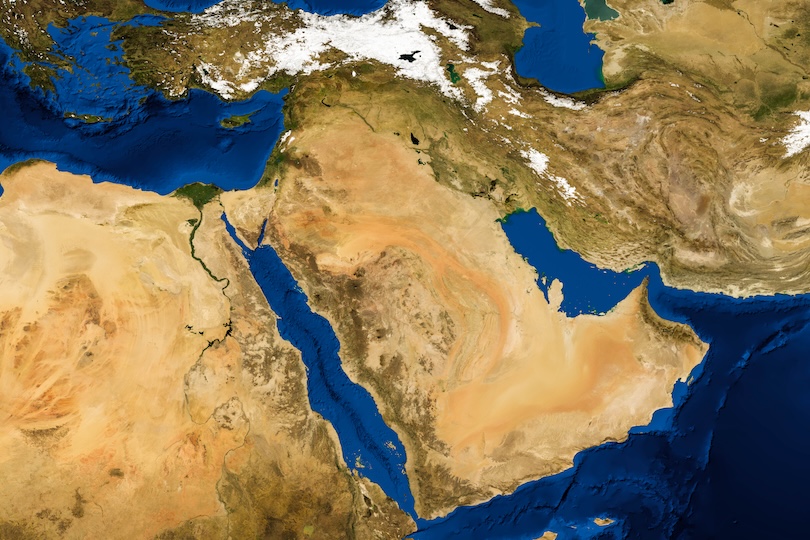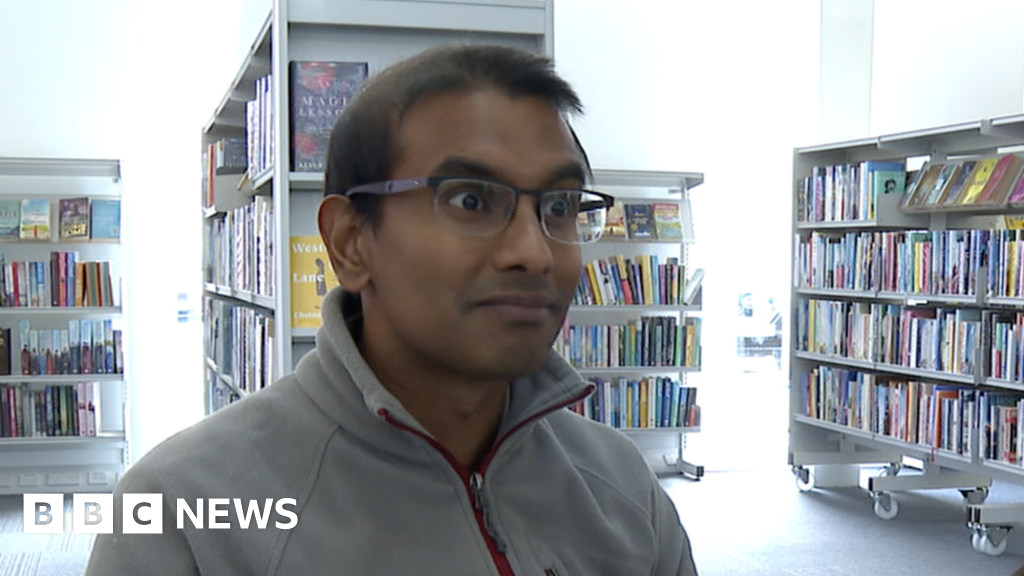This is an excerpt from The Praeter-Colonial Mind: An Intellectual Journey Through the Back Alleys of Empire by Francisco Lobo. You can download the book free of charge from E-International Relations.
‘What kind of American are you?’ is a line from the 2024 movie Civil War. It will hit Latin Americans in a particularly powerful way – as one of the stars of the film, Wagner Moura, admitted during an interview when asked about the scene in which his character is confronted with a trigger-happy militia man with a keen interest in geography and demographics: “‘What kind of American are you’ is something that really strikes me, as someone that is not from here. I’m an American citizen, too, but I speak with an accent and I’m Brazilian. (…) In the end, when we wrapped, really, I laid down in the grass and cried for 15 minutes. It says something about being a Latino in this country, and it was a really strong scene for me (Weintraub and Jones 2024, para. 27).”
Coming out of the movie theater after watching the new blockbuster, the same question kept popping up in my head. I am definitely not the right kind of American in the eyes of the murderous inquisitor, and if I were in that situation, admitting I come from Chile would have bought me a one-way ticket to the mass grave where the one guy from Hong Kong also ends up. I am a Latino, and I have also been a Latino in that country, just like Moura. And although I am not a citizen, I am technically American, because I was born in the continent bearing that name. There are many peoples and many states scattered across that gigantic landmass stretching from Alaska to Tierra del Fuego. Some of them are united, some divided. But they are all American.
It feels only natural to dovetail our reflections on the British Empire with a chapter dedicated to one of the most salient continuations of the imperial experience coming out of Merry Old England: the United States of America. This is a point only made incidentally by Sathnam Sanghera when he underscores that the US is a British imperial creation, and that ‘One of the biggest lies America tells itself is that it rejects everything the awful [British] empire ever stood for’ (Sanghera 2024, 23). In this chapter I would like to pay more attention to this sprout of British imperialism to explore how the praeter- colonial mind can make sense of what I call the ‘Reluctant Empire’ – an empire in all but name in a supposedly post-colonial era. Since this is a chapter on the community of nations that is, or should be, known collectively as ‘Americans’ – that is, the inhabitants of the continent of America – it belongs in the first part of this study dedicated to all these different ‘Huddles’ we choose, or are made, to identify with. A separate chapter, titled ‘America First, Humanity Second: Trump, MAGA, and American Imperialism Revisited’ (Chapter Nine), will further delve into the many challenges that neo-imperial Trumpism poses to the world, and particular the Americas. I advise the reader to use that chapter as a companion to the present one.
We Are All Americans
When I was a teenager growing up in Chile in the 2000s, for some reason it became fashionable to be anti-American – a fad that occasionally afflicts Europeans and Latin Americans alike. In this iteration I witnessed how some of my classmates who just a few years before enjoyed the latest episodes of Friends, The Simpsons, or WWE, and listened to music released by Green Day, The Red Hot Chili Peppers, or Blink 182, overnight started hating the US and rejecting everything it stood for.
Some of them even formed a band called Yanquis Muertos (‘Dead Yankees’), such was the extent of their new-found resentment. I can still hear the lyrics of their first ever single, played to the tune of a reasonably good punk rock track: ‘¡No queremos más yanquis, yanquis!’ (‘We don’t want any more Yankees, Yankees!’). The lead guitarist would make comments such as ‘They don’t even have a proper name – the US is a country without a name’, meaning that all the words ‘United States of America’ convey is a form of political organization plus a geographic location, or ‘an adjective attached to a generic noun’ (Grandin 2025, xxi). How the similar designation ‘United Kingdom of Great Britain and Northern Ireland’ slipped under his radar is beyond me.
However, there is a point to the traditional objection against the use of the term ‘America’ to refer to a single country in a continent housing three dozen different nations (Rousseau and Houdart 2007). Every person located south of the Río Bravo will scold you if you use ‘America’ to signify the US, or ‘American’ to refer to its citizens. ‘We are all American – America is a continent’ the bitter retort will usually go.
And it is technically correct. America is indeed a continent, named almost by accident by a German cartographer in 1507, Martin Waldseemüller, who drew up the first world map designating the continent ‘discovered’ by Columbus as ‘America’, in recognition of the exploits of one Amerigo Vespucci, an Italian sailor who circumnavigated the globe and thus confirmed that the territory Columbus thought was India was indeed a separate continent (Parker 2022, 93).
If you think about it, the new landmass might just as well have been named ‘Vespucia’ instead of ‘America’, and the country that is the subject of this chapter would be called the ‘United States of Vespucia’, populated by Vespucians living the Vespucian Dream, all the while Latinos insisting that we are all indeed Vespucians. Or, if history was a little fairer, the continent would be named after Columbus, thus ‘Columbia’ not amounting to just a university in New York or ‘Colombia’ to one single country in South America (Grandin 2025, xv). William Thornton, the designer of the Capitol building in Washington D.C., thought as much when he proposed his idea for a Pan- American Constitution for ‘United North and South Columbia’ in 1800 (Andrew et al. 1932).
Doesn’t Columbus deserve a continent with his name on it to match the magnitude of this contribution to world history, for better or worse? But history is rarely fair or accurate like that, so America it is and America it will remain. Not surprisingly, Waldseemüller’s map containing what has been called the ‘birth certificate’ of America sits in the Library of the US Congress after the North American country paid handsomely to acquire such a precious – arguably the very first – piece of Americana.
‘Hacerse la América’
America is, thus, a place. But not just any place. According to aggregated demographic trends over the past five hundred years, it would appear that it is the place to be – not just the North, and in particular the United States, but the entire continent brimming with potential and opportunity in the eyes of Europeans and other peoples, hence the Spanish expression ‘Hacerse la América’, the closest translation of which would be ‘to make America happen for you’. In that sense, America is not just a place, even one as beautiful as to confront the traveler from distant lands with ‘something commensurate to his capacity for wonder’ (Scott Fitzgerald 2001, 151) to borrow a line from The Great Gatsby. America is not merely a place, but a concept, an idea. What idea is that?
Alexis de Tocqueville, the French thinker who authored one of the most insightful x-rays ever taken of the young North American body politic of the early nineteenth century, observed about democratic (as opposed to aristocratic) peoples that they ‘have a natural taste for freedom: left to themselves, they will seek it, cherish it, and view any privation of it with regret’. Yet, Tocqueville concludes that ‘for equality, their passion is ardent, insatiable, incessant, invincible’ (Tocqueville 2009, 962).
Despite some critical factors sometimes obscuring it – not least recalcitrant racial, gender and income inequality – this passion for equality can be observed in every detail of American life, from its signature first-name-basis treatment to the mass-produced uniformity of its economic life, from the political balance of its perfectly symmetrical Senate (100 seats, 2 for each of the 50 states) to the deeply held belief that all men are created equal in ‘a nation bound together not by ties of blood or religion, but by paper and ink’ (Rivkin and Casey 2001, 35–36).
This passion for equality is also the main driver behind the strong political commitment to merit that is characteristic of the US – flawed and non-factual as it may be sometimes. One of the most American characters I have ever met in my life is actually a man from Kyrgyzstan who works in tech and is actively involved in an outlandish political project he described as ‘Meritland’, a collection of like-minded, hardworking individuals planning to start their own country, a tech-utopia open to all those willing to take a skills test to join. They are even looking for real estate opportunities around the world to bring their vision into life. He may or may not have actually been to the US, and his peculiar dream may never come to fruition, but to me this Kyrgyz man seemed as American as apple pie or Jay Gatsby, who, according to F. Scott Fitzgerald, believed in that metaphorical green light representing a future ‘that year by year recedes before us. It eluded us then, but that’s no matter – to- morrow we will run faster, stretch out our arms farther…And one fine morning –’ (Scott Fitzgerald 2001, 151).
The Reluctant Empire
After hurricane Maria struck Puerto Rico in 2017, President Donald Trump delivered the following message to its distraught population: ‘I hate to tell you, Puerto Rico, but you’ve thrown our budget a little out of whack, because we’ve spent a lot of money on Puerto Rico and that’s fine, we’ve saved a lot of lives’ (CNN 2017, para. 6). What was he even doing there? Puerto Rico is not a state of the US. But it does have a special relationship with the North American country. Technically, Puerto Rico is an unincorporated territory of the United States, falling under the jurisdiction of the US Congress. Some may even say Puerto Rico is a colony of sorts. It was gained by the US after it defeated Spain in 1898, a conflict that also resulted in the acquisition of Guam and the Philippines for the North American country, as well as a strong presence in Cuba that remains effective today in Guantánamo Bay.
Just like the Athenians brazenly declared to the inhabitants of the island of Melos during the Peloponnesian War that ‘the strong do what they will while the weak suffer what they must’, the US of the turn of the twentieth century did with all these islands as it pleased and they had to suffer it, thus affording Donald Trump the chance to show up there a century later and talk to their inhabitants as a rent collector. But saying that Puerto Rico is a colony of sorts would entail that the US is an empire of sorts. Is it though?
If the US is an empire today then its origin story must be found in its predecessor, the British Empire. But however much Americans love to portray Brits as villains in every narrative, as Sanghera also reminds us (Sanghera 2024, 28), the British Empire was not in actuality a product of pure evil or a criminal masterplan of world domination. It may not even have been deliberate to begin with. Through the sheer power of private capital backed by brute force, the British expanded their influence across the globe, more for profit than for anything else. Eventually, they found themselves in possession of a vast network of colonial outposts owned by subjects of the same sovereign, such as the East India Company or the West India Company, and presto: British Empire. It was an empire ‘acquired in a fit of absence of mind’ (Sanghera 2021, 42), an ‘inadvertent empire’ (Roca 2020, 53).
If in the end the British fully embraced their imperial identity and even named some of their most famous institutions after it – as evidenced by such relics as the Imperial College London or the Imperial War Museum – Americans, on the other hand, have a hard time accepting their legacy – Donald Trump’s neo-imperialistic designs notwithstanding, about which I will have more to say in Chapter Nine.
We may even say that often times Americans display a post-colonial mindset, as they proudly broke free from the evil empire; but, at the same time, they behave in a way that would be better understood from a praeter-colonial point of view, with all its complexities and contradictions – wishing they could have their imperial cake and eat it too, as it were. Like Michael Ignatieff says: ‘Americans have had an empire since Teddy Roosevelt yet persist in believing they do not’ (Ignatieff 2003, 1). This empire in denial can indeed be called the ‘Reluctant Empire’, paraphrasing Teddy Roosevelt’s remark about how the US might at times have to, ‘however reluctantly’ (Allison 2017, 239), step in to enforce the Monroe Doctrine. Crucially, the emperor’s reluctance to rule means that sometimes lesser kings may and will come out to play (Lévy, 2019).
The Reluctant Empire is different from its European predecessors in that, although it has perfected the informal exercise of power they invented, through private initiative and the free movement of capital and people around the world (Koskenniemi 2011, 35–36), it refuses to embrace its true nature as an empire. This may stem from the fact that the methods to expand its influence often come not in the form of hard power (of which, for sure, it also has plenty), but as incredibly effective and irresistible displays of soft power ranging from the opening of Coca-Cola factories and Rotary Club branches to the expansion of a form of hegemony without formal colonies (De Grazia 2006). In other words, ‘a global sphere of influence without the burden of direct administration and the risks of daily policing’ (Ignatieff 2003, 2). Precisely the same kind of soft power based on ‘attraction’ that the second Trump administration is squandering at an alarming rate (Keohane and Nye 2025), as we shall see in Chapter Nine.
Furthermore, this Reluctant Empire styles itself as the champion of freedom, democracy and human rights around the world, because all these values espoused by the ‘humanitarian empire’ (Ignatieff 2003, 17) are held to be self- evident, that is, natural or universal truths that can and must be accepted by all, as inevitably as accepting that two plus two equals four. And if you are disseminating the word of what is true and universal, what should be grasped intuitively by the human mind wherever it may be found while history is ‘suspended’ as a result of this immutability (Hardt and Negri 2000, xiv), how can you think of yourself as imposing anything? How could you not see your project as one of liberation whereby the truth within every human being is unlocked and their potential unleashed?
The Indigenous American Berserk
The main problem with this schizophrenic post-colonial/colonialist mindset is that it is not sustainable as it does not measure up to the challenges of our age, as we shall also see in Chapter Nine. Americans want their hegemony, but they don’t want to commit too much blood and treasure to maintaining it. They see a humanitarian catastrophe and haste to help those in need. But then they haste back, riding off into the sunset after their work is done. They ‘feed and leave’, because they ‘lack the imperial cast of mind’ (Ferguson 2004, 29), as well as that illusion of permanence that is the essence of successful imperialism (Kaplan 2023, 258). As Ignatieff puts it:
These new empires depend, ultimately, on the staying power of electorates, and democratic peoples make fickle imperialists. (…) But empires don’t come lite. They come heavy, or they do not last (Ignatieff 2003, 116).
As with every empire built on the foundation of democratic institutions, then, the main challenges and dangers for the American empire come not from foreign competitors, but from within. Tocqueville’s account of America’s passion for equality already contained a warning, all those centuries ago:
they call for equality in freedom; and if they cannot obtain that, they still call for equality in slavery. They will endure poverty, servitude, barbarism – but they will not endure aristocracy. This is true at all times, and especially true in our own (Tocqueville 2009, 962).
Tocqueville further calls our attention to the perils of individualism, which is a more sophisticated version of egotism unique to democratic societies:
Individualism is a mature and calm feeling, which disposes each member of the community to sever himself from the mass of his fellow-creatures; and to draw apart with his family and his friends; so that, after he has thus formed a little circle of his own, he willingly leaves society at large to itself.
(…)
Aristocracy had made a chain of all the members of the community, from the peasant to the king: democracy breaks that chain, and severs every link of it (…). Thus not only does democracy make every man forget his ancestors, but it hides his descendants, and separates his contemporaries from him; it throws him back forever upon himself alone, and threatens in the end to confine him entirely within the solitude of his own heart (Ibid, 963; 965–966).
Is it any wonder that an empire with such a societal makeup will lack appetite for foreign adventures and long-term global commitments, when its citizens show no interest in what goes on beyond their own parochial reality?
And it can get worse. If Americans (or any democratic society, for that matter), retire from public life and surrender it to less than qualified individuals (the consequences of which we will explore in Chapter Nine), then John Adam’s additional warning to his youngest son, Thomas, will always come back to haunt them: ‘Public business my son, must always be done by somebody – it will be done by somebody or other— If wise men decline it others will not: if honest men refuse it, others will not’ (Adams 1789, para. 1). Thus, the rule of unwise, dishonest characters over millions of disinterested individuals can only end badly for everyone involved – both within and outside their borders. The warning signs are all there, the writing on the wall found not only in the words bequeathed to us by great political thinkers, but also in works of fiction. It can be seen, for instance, in the new Civil War movie that opened this chapter, portraying a very plausible scenario of internecine political confrontation in an already divided America.
It can also be found in the pen of a great American writer, Philip Roth. In The Plot Against America he imagines what would have happened in the US if the fascist candidate had won the presidential election of 1940. The outcome is not hard to predict: America never enters the war and antisemitism runs amok. Amidst all the darkness of this story, which we can comfortably assess from the light that the ‘right side of history’ sheds upon us, Roth presents us with a sobering reminder: ‘The terror of the unforeseen is what the science of history hides, turning a disaster into an epic’ (Roth 2005, 113–114). In American Pastoral Roth also warns us about the dormant demon of political violence that dwells within, the antithesis of the idyllic American Dream: the counter-pastoral of the ‘indigenous American berserk’ (Roth 1998, 92).
This germ of political violence is, of course, not only indigenous to North America, nor can it be identified with any particular group. It is just raw humanity, human nature at its most primeval, the inherent heart of darkness Conrad wrote about when contemplating the checkered record of civilization in his day. It was likewise experienced firsthand by another (South) American, one of Argentina’s founding fathers, Francisco Narciso de Laprida, who tried to establish the rule of law in his young nation only to arrive at a crude awakening to the minotaur-like dream that was the Spanish Empire, half humanist, half beast (Grandin 2025, 182). Doctor Laprida’s last thoughts before being executed by political rivals would be famously conjectured by the poet Jorge Luis Borges over a century later:
I who wished to be someone else, to be a man of judgments, of books, of rulings, I shall lie in the mud under open skies; but a secret joy inexplicably elates my chest. At last, I meet my South American destiny (Borges 1943).
Will the US ever have to meet its North American destiny? Will it embrace it with equal joy?
Give Me Your Bad Hombres
What kind of American was our ill-fated Laprida? A son of Argentina educated in Chile, he seems to be an American of the Southern variety. He would have definitely met his North American destiny in the Civil War movie, landing next to me and the Hong Kong guy in the mass grave, as he is the kind of ‘bad hombre’ that features in the nightmares of many conservative Americans dreading an influx of the worst elements of society pushing through the southern border. Isn’t that kind of the point of America (the country and the continent) though? Isn’t a faith in the redeeming power of the New World, making America ‘more an ideal than a place’ (Grandin 2025, xix), the main driver behind every revolution from New England to Patagonia?
In the poem inscribed at the feet of the Statue of Liberty, The New Colossus by Emma Lazarus, this quintessential American symbol, ‘Mother of Exiles’, casts a message to the Old World:
Keep, ancient lands, your storied pomp! (…) Give me your tired, your poor, your huddled masses yearning to breathe free, the wretched refuse of your teeming shore. Send these, the homeless, tempest-tost to me, I lift my lamp beside the golden door!
Jerry Seinfeld once joked that it would have been enough to let people know America is open for immigration, but there’s really no need to specify it will take all the ‘wretched refuse’ and the like:
Why don’t we just say: “Give us the unhappy, the sad, the slow, the ugly, people that can’t drive, that have trouble merging if they can’t stay in their lane, if they don’t signal, can’t parallel park, if they’re sneezing, if they’re stuffed up, if they’re clogged, if they have bad penmanship, don’t return calls, if they have dandruff, food between their teeth, if they have bad credit, if they have no credit, missed a spot shaving… In other words, any dysfunctional, defective slob that you can somehow cattle prod onto a wagon, send them over, we want them! (Seinfeld 2008, at 0:19).
However, the point is precisely to take in people in all their imperfect humanity – pilgrims onboard the Mayflower and Spanish conquistadors were probably not among the cleanest, nor did they have the best credit if they risked the voyage to start afresh in a distant land.
The fact is that America, the continent, has always been a place to welcome the exiles and the wretched refuse, folks who, whether coming from left or right of the landmass, chasing after mammoths or shibboleths, decided that staying put was not going to cut it. They wanted more. They wanted to make America happen for them. This is particularly the case for America, the country, a place where the same entrepreneurial spirit is celebrated, for instance, in the figure of Columbus, whose legacy is commemorated even if he never actually set foot on what is today US soil. A place where people take pride in the fact that their ancestors came from ancient lands leaving behind the storied pomp that was probably oppressing them. A place where some have even called for more folks to come in and multiply, that one day one billion Americans may tip the scales of demographic trends in our ever- changing world (Yglesias 2020).
Coming back from one of the world’s current hotspots, Ukraine, around the time of the 2024 US presidential election I find myself in a place close to that other controversial corner of the earth, in the Great State of Arizona where my wife is from, and where half the people I meet can address me in my mother tongue. A place featuring in the Mexican comedy Por mis pistolas (‘By my guns’) where comedian and Latin American treasure Mario Moreno Cantinflas walks through a border that, in all truth, first crossed over the heads of many of the people living there rather than the other way around, when the land changed owners in the nineteenth century. A place where, oddly enough, the fates of millions in Eastern Europe might be decided as conservatives in the US openly make their support for Ukraine conditional on stronger border control in the American South West. It is truly something for the praeter- colonial mind to work out, that the success or failure of one imperial endeavor (Russia’s) may be decided by the political will available in a different empire located halfway across the world (the US).
Truth be told, it is impossible to ignore that the same spirit of independence, the same love of freedom, equality and the pursuit of happiness can be found among Ukrainians, possibly the most ‘American’ of all European peoples today. A bust of Cuban revolutionary José Martí located in Bulvarno- Kudriavska street in Kyiv stands as a constant reminder of this, complete with a plaque honoring him as a ‘thinker, poet, and fighter for human dignity’. Indeed, ‘steeped in the ethics and history’ of late nineteenth century Pan- American ideals of sovereign equality among nations and committed to fight to the death against Spanish imperialism, Martí epitomizes the spirit of self- determination that millions of Ukrainians display today. Just like Martí and his allies sought to ‘avenge Melos by insisting on sovereign equality for all, not only for those equal in power’ (Grandin 2025, 315) Ukraine is fighting for the same universal principles in the twenty-first century.

 Movie
Movie 3 weeks ago
72
3 weeks ago
72 





![Presidents Day Weekend Car Sales [2021 Edition] Presidents Day Weekend Car Sales [2021 Edition]](https://www.findthebestcarprice.com/wp-content/uploads/Presidents-Day-Weekend-car-sales.jpg)




 English (United States)
English (United States)